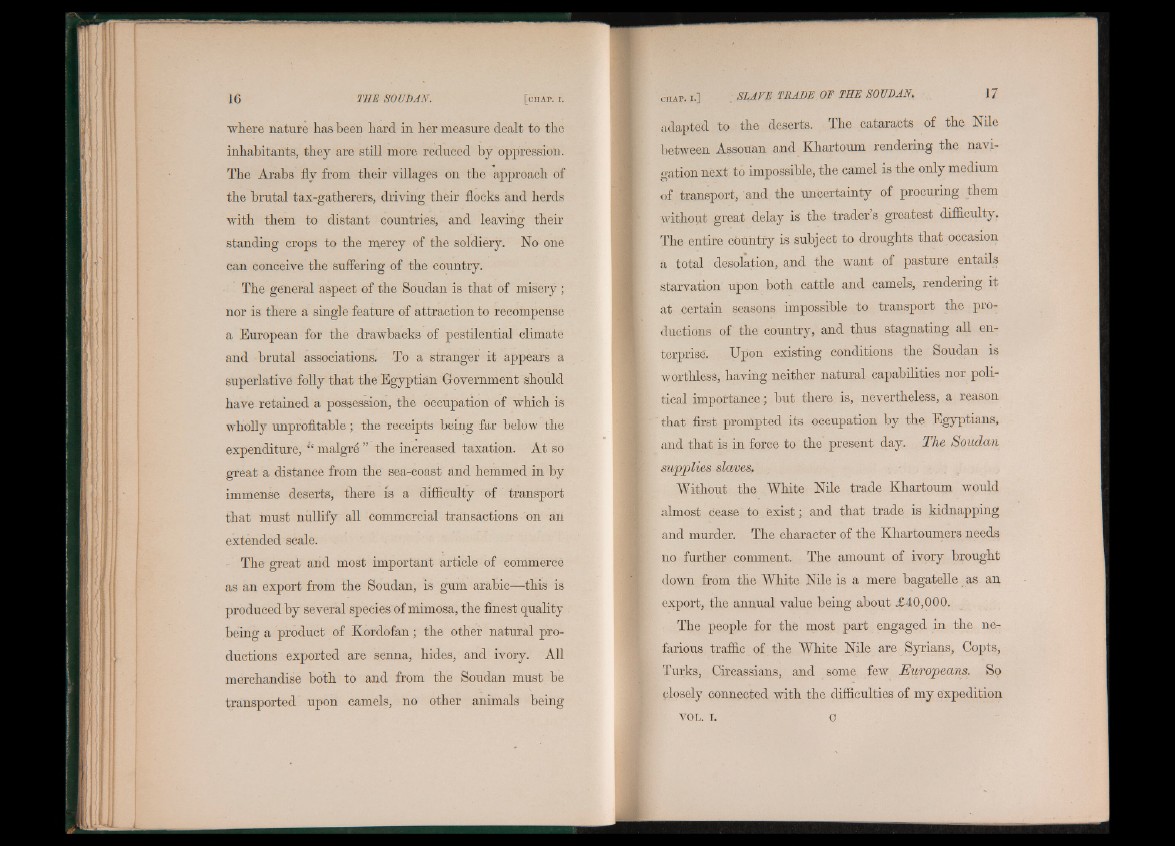
where nature has been hard in her measure dealt to the
inhabitants, they are still more reduced by oppression.
The Arabs fly from their villages on the approach of
the brutal tax-gatherers, driving their flocks and herds
with them to distant countries, and leaving their
standing crops to the mercy of the soldiery. No one
can conceive the suffering of the country.
The general aspect of the Soudan is that of misery ;
nor is there a single feature of attraction to recompense
a European for the drawbacks of pestilential climate
and brutal associations. To a stranger it appears a
superlative folly that the Egyptian Government should
have retained a possession, the occupation of which is
wholly unprofitable ; the receipts being far below the
expenditure, “ malgré ” the increased taxation. At so
great a distance from the sea-coast and hemmed in by
immense deserts, there is a difficulty of transport
that must nullify all commercial transactions on an
extended scale.
The great and most important article of commerce
as an export from the Soudan, is gum arabic—this is
produced by several species of mimosa, the finest quality
being a product of Kordofan ; the other natural productions
exported are senna, hides, and ivory. All
merchandise both to and from the Soudan must be
transported upon camels, no other animals being
adapted to the deserts. The cataracts of the Nile
between Assouan and Khartoum rendering the navigation
next to impossible, the camel is the only medium
of transport, 'and the uncertainty of procuring them
without great delay is the trader s greatest difficulty.
The entire country is subject to droughts that occasion
a total desolation, and the want of pasture entails
starvation upon both cattle and camels, rendering it
at certain seasons impossible to transport the productions
of the country, and thus stagnating all enterprise.
Upon existing conditions the Soudan is
worthless, having neither natural capabilities nor political
importance; but there is, nevertheless, a reason
that first prompted its occupation by the Egyptians,
and that is in force to the present day. The Soudan
supplies slaves.
Without the White Nile trade Khartoum would
almost Cease to exist; and that trade is kidnapping
and murder. The character of the Khartoumers needs
no further comment. The amount of ivory brought
down from the White Nile is a mere bagatelle as an
export, the annual value being about £40,000.
The people for the most part engaged in the nefarious
traffic of the White Nile are Syrians, Copts,
Turks, Circassians, and some few Europeans. So
closely connected with the difficulties of my expedition
v o l . i . c